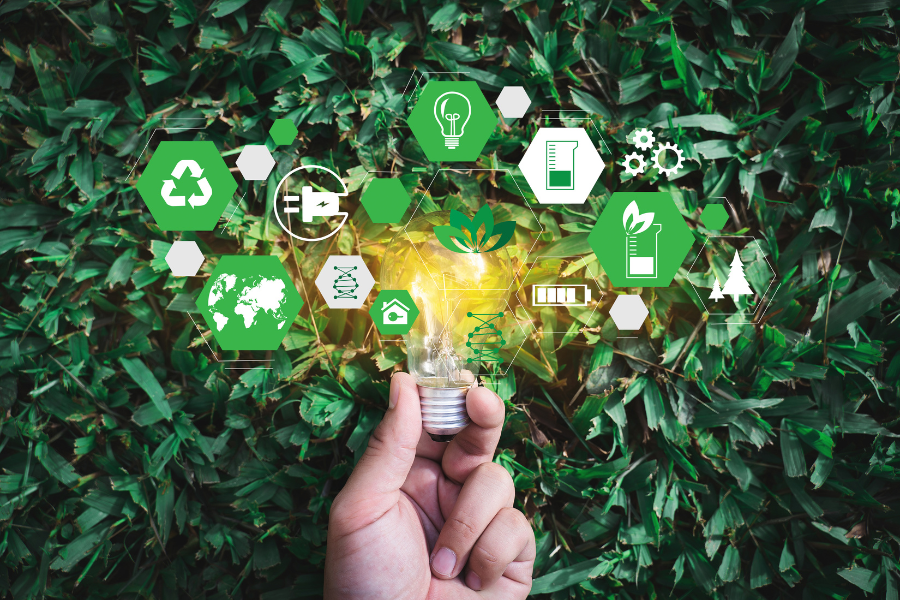ESG/Sustainable Investing has become a political issue for some, and there is a misperception that asset managers are willing to accept lower returns in order to pursue ESG goals. The truth is, while a small percentage of ESG investment funds are set up to do that (look for the word “Impact”), the vast majority do not.
Unfortunately, politicizing ESG can make it difficult to focus on the compelling economic reasons to incorporate ESG principles in business and investment decision-making. Here, we offer 25 of those very real economic reasons:
- The impact of climate change on economies around the world is making headlines. The Wall Street Journal’s headline on August 22, 2022 read, “Droughts Take Widening Toll on World’s Largest Economies”;
- Recent surveys show that about 85% of consumers want companies to reduce waste in packaging and definitely consider this in making purchase decisions;
- Strong corporate governance can prevent costly lawsuits that arise from conflicts of interest, a lack of transparency and accountability, failure to enforce anti-harassment policies, and so on;
- Rising CO2 emissions that are the primary cause of greenhouse gas effects are intensifying droughts and floods, which are destroying crops. This is causing food prices to rise, hurting consumers and reducing income in many local communities (e.g., a loss of over $300 million in Yuma County, Arizona, according to the WSJ);
- Study after study shows that diverse groups make better decisions than homogeneous groups. That’s one of the (many) reasons diversity in the workplace, on the Board, and in the C-suite improves business outcomes;
- When factories have to reduce output or shut down because overloaded electric grids cannot meet demand as temperatures reach all-time highs around the world, it is bad for productivity and aggravates supply chain problems. In fairness, this also indicates an ongoing need to include fossil fuels in the world’s overall energy mix until renewables and carbon-capture can allow us to achieve “net zero” emissions;
- Employee engagement matters, because when people don’t like their jobs they quit. Recruiting and training new people is expensive, and top executives say that finding and retaining talent is their #1 challenge. It is more cost-effective to increase employee engagement than to contend with a consistently high level of turnover – Gallup estimates that U.S. businesses are losing a trillion dollars every year due to mostly avoidable voluntary employee turnover.
- Drought conditions have made critical water-ways unnavigable, further aggravating supply chain snarls. In some places (notably, France) rivers that are needed to cool nuclear reactors are at dangerously low levels, threatening that “clean” energy supply;
- Recycling and reducing waste, in the workplace and in the products a company sells, saves money, increases customer loyalty, and improves brand image;
- Buildings use energy, water, and raw materials, generate waste, and emit potentially harmful atmospheric emissions. Green buildings have been shown to save money through reduced energy and water consumption and lower long-term operations and maintenance costs. The energy savings alone typically exceed any cost premiums associated with their design and construction within a reasonable payback period.
- Consumers vote with their wallets, and many will not buy products from companies that are known to use child labor or exploit other vulnerable workers anywhere in the supply chain to keep costs low;
- The unprecedented loss of biodiversity over the past decade is affecting the ability to develop potentially life-saving pharmaceuticals, destroying food sources, and harming tourism. More than half of global gross domestic product depends on nature.
- The National Safety Council (NSC) estimated that U.S. work-related deaths and injuries cost the nation, employers and individuals $171 billion in 2019 – that’s a measure of the economic impact of preventable injuries. Investing in better employee health and safety measures in the workplace could help to reduce this drag on the economy.
- Mangrove forests are nature’s way of keeping coastal waters clean but are being destroyed to expand farms and palm oil plantations that put fertilizers and chemicals into water supplies. This chokes off aquatic life, makes farming seafood more expensive, and hurts tourism.
- One-third of all food produced in the world is never eaten (while millions go hungry), and the Business Case for Reducing Food Loss and Waste found that for every $1 invested in reducing food waste and loss, companies saved $14 in operating costs.
- We hear about data breaches every day. While it may be impossible to stay ahead of hackers in all cases, the cost of negligence lawsuits that will happen if a company fails to take data privacy seriously are far greater than the cost of protecting customer data;
- According to insurance giant Swiss Re, if temperature increases stay on the current trajectory, by mid-century the world stands to lose around 10% of total economic value from climate change. That is, in Swiss Re’s words, “a real scenario”;
- Helping individuals in developing countries to access financial services boosts economic growth. When microbusinesses can accept and make payments securely, have a savings account, etc., they can thrive and that benefits everyone (even businesses in the U.S. that sell into those markets);
- S&P’s decision to drop Tesla from its ESG Index may seem capricious, but the facts tell a different story. This had everything to do with the rules that determine how the index is constructed; it wasn’t about overlooking the fact that Tesla makes EVs;
- ESG ratings have been criticized for being subjective and inconsistent from one vendor to another. While it is a complex problem, that is no reason to ignore the real economic impact of what those ratings are attempting to capture (albeit imperfectly);
- As noted above, it seems reasonable to continue to use fossil fuels as part of our energy mix, but given that solar and wind power now cost the same or less than fossil fuel and are better for the planet, it makes economic sense to keep shifting toward renewables;
- In a study that surveyed roughly 3,000 consumers, Google’s research found that people are more likely to consider, or even purchase, a product after seeing an ad they think is diverse or inclusive. The study reports that 64% of those surveyed said they “took some sort of action after seeing an ad that they considered to be diverse or inclusive”;
- According to the World Economic Forum, the transition to clean energy is expected to generate 10.3 million net new jobs globally by 2030, offsetting the 2.7 million jobs expected to be lost in fossil fuel sectors by a wide margin.
- Kerry surveyed over 14,000 consumers across 18 countries in North America, Europe, and Latin America who are influenced by sustainability while making food and beverage decisions. Seventy-five percent expect companies to invest in sustainability, and look to brands, manufacturers, and government entities to lead the way;
- As Harvard Business School management gurus Michael Porter, George Serafeim, and Mark Kramer wrote in Institutional Investor: “The purpose of investing is to create a virtuous cycle by allocating capital to those companies that create the greatest societal returns…[to drive] present returns as well as future growth and opportunity.”
ESG is about identifying business risks and opportunities that do not show up on financial statements. It’s about building companies that are sustainable, and investing capital in those businesses, to earn competitive returns and promote sustainable economies, in a positive feedback loop. We think that makes sense, regardless of one’s politics.




